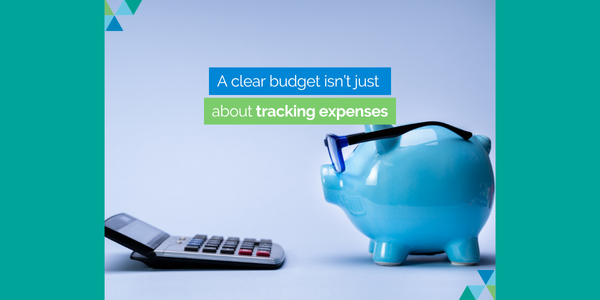20 Critical Questions – What to ask yourself during a pandemic lockdown

20 CRITICAL QUESTIONS - WHAT TO ASK YOURSELF DURING A PANDEMIC LOCKDOWN
Awareness
1. Are you keeping abreast of changes in the economic, health and professional landscapes through national and state government websites, media reports and other occasional updates? And doing so within reason but avoiding getting overwhelmed by information overload and scaremongering?
2. Are you aware of your personal health risk factors? Do you have the knowledge and means to address any concerns in a well-informed manner that might arise quickly? Readiness
3. Do you have an updated list of contact details for ambulance, your doctor, pandemic testing sites, hospitals and pharmacies in case of need?
4. Are you maintaining contact with others in higher-risk health categories such as immediate family members, relatives especially the elderly, friends, neighbours and professional colleagues? Are you looking out for people under stress or potential instances of domestic or family violence? At times of crisis instances of domestic and family violence can spike, so be aware of hotlines and services that could potentially help others.
5. Are you keeping abreast of changes to your personal financial circumstances, maintaining an adequate cash flow, seeking government benefits that may be on offer, informing your bank of any liquidity challenges, paying bills and other commitments on time, and maintaining your taxation obligations?
Personal wellbeing
6. While these are highly disrupted times, are you maintaining a 'normal' routine as much as possible including keeping on top of household tasks such as cleaning, shopping, washing, mowing, gardening, home maintenance, etc? Are you maintaining a healthy well-balanced diet, following your faith, and maintaining personal hygiene and grooming? If these things lapse it can be detrimental to your mental health and wellbeing.
7. If your anxiety levels are increasing do you have someone sensible and well-balanced to talk to openly, frankly and meaningfully to put your mind at ease?
8. Are you taking the time to catch up on things you put off because you are normally 'time poor' such as time with family, reading, watching the latest movie, watching favourite TV show re-runs, playing board-games and cards, volunteering and charity work, or taking up a new hobby like painting? Are you maintaining regular exercise within the confines of your own home or within your local community while keeping recommended distances from other people?
If you are an Internal Auditor - The basics
9. Have you established a new routine with your manager and work colleagues to maintain regular contact daily or at least several times weekly through videoconferencing, teleconferencing, e-mails, social media or personal telephone contact?
10. Does your partner, a family member or friend have details of professional contacts for your manager and stakeholders so they can inform them of your situation if you are suddenly unavailable due to illness or hospitalisation?
11. Are you networking effectively including reaching out to stakeholders and customers to keep them informed of impacts on your services and completion of the internal audit plan and what it means for them? Are there former friends or professional colleagues you might wish to reconnect with at this time?
12. Are you offering advisory and consulting expertise to internal clients so they know who to call to discuss difficult operational issues, business changes, new products or services, or proposed or enforced changes to the business control environment?
13. Have you considered the impact on the audit committee agenda and meeting arrangements during the lock-down period by identifying opportunities to focus the agenda to essential time critical items, introducing videoconferencing or teleconferencing options, optimising other technologies such as board portals, confirming the availability of audit committee members to form a quorum, and ensuring availability of presenters?
Challenging the status quo
14. Can you and your colleagues undertake research projects on priority topics that inform the way your internal audit function may adapt to operate in the future? Have you considered the opportunity to review and update the internal audit manual, auditing methodology and associated templates?
15. Have you reviewed and updated the internal audit plan to factor in changes to management strategies, objectives, risks and priorities? Have you reviewed the internal audit plan to identify different ways of working such as more forward looking internal audit services and increased advisory services? Or researching a broader range of audit technology tools and techniques including computer assisted audit techniques (CAATs), robotics and artificial intelligence?
Professional opportunities
16. Is there an opportunity in your downtime to write a professional article, essay or book you have always wanted to do?
17. Is there an on-line webinar or short course you could take to further develop your skills in line with your performance plan, or perhaps there is an on-line postgraduate course you always wanted to pursue?
18. Can you enrol in an auditing certification on-line program through a professional body such as the IIA, ISACA, or the Association of Certified Fraud Examiners (ACFE) to advance your credentials through professional certifications such as CIA, CISA, CFE or one of their speciality designations?
The new normal
19. Are you keeping notes of practices that worked well and those that didn't during the lock-down that you can factor into new ways of working when normal business operations resume? Might these include adoption of integrated internal audit services, working from home protocols and reviewing your personal home-based work setting – was technology, computer hardware and software and bandwidth sufficient; was your work-space quiet, safe, well-lit and appropriate?
20. Have you considered sharing your insights on 'the new normal' with your peers in other organisations for instance through a professional body such as the IIA?










